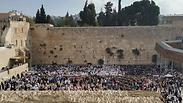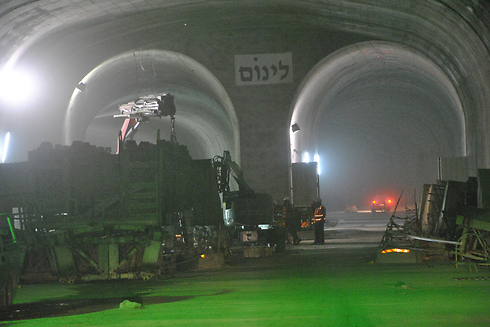
The extension will involve digging tunnels for two kilometers at a depth of 80 meters. Minister Katz mentioned that the extension should significantly decrease congestion at the Binyanei HaUma railway station, allowing tourists, students, and others to reach the Western Wall easily and quickly from central Israel.
The high-speed railway project's costs are estimated to be about NIS 7 billion. It includes the laying of 56 kilometers of tracks, which go from Tel Aviv, through Ben Gurion Airport and Modi'in, and end in Jerusalem. Trips from Tel Aviv to Jerusalem are expected to take just 28 minutes.
Work on the line is expected to conclude by the end of 2017, with its first voyages planned for Passover 2018. Three trains are expected to launch between Tel Aviv and Jerusalem each hour during peak times of day, with a total of four million trips per year.
The railway's path includes about 22 kilometers of tunnels and about 7 kilometers of tracks on bridges. "The high-speed railway line to Jerusalem is the biggest project in the Israel Railways development plan, (and it) will connect the Shfela (south-central Israel) with Jerusalem and will allow thousands of workers who commute to and from Jerusalem every day to reach the capital quickly and comfortably," Katz said.

















